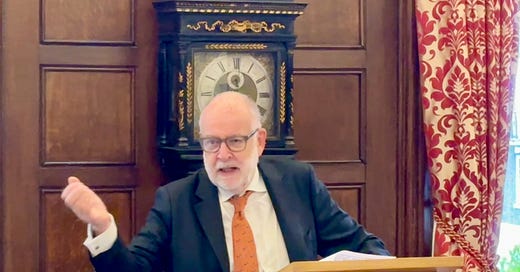A former lord chancellor who served in Tony Blair’s Labour government has described Donald Trump’s “refusal to obey court orders” and his “unleashing” of “political vituperation” on judges who made them as “wrong and very, very dangerous”.
Lord Falconer of Thoroton, a cabinet minister from 2003…
Keep reading with a 7-day free trial
Subscribe to A Lawyer Writes to keep reading this post and get 7 days of free access to the full post archives.




